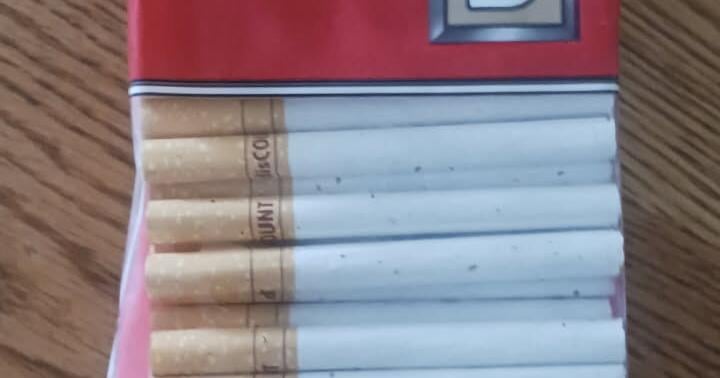Smokers can save big through the black market, but then their money goes towards organized crime rather than the public healthcare system.
In the midst of an opioid crisis, cigarettes may not seem like a big deal. Sure they smell awful and nicotine is highly addictive, but tobacco has always been legal and it doesn’t fog your brain like booze or drugs.
When a smoker is in the market for a carton – 10 packs containing 200 cigarettes – they can get one at the gas station for roughly $125, or they can buy the same thing online or out of a shipping container for $35.
And the organized crime groups selling them at a bargain are generating roughly a billion dollars each year throughout Canada, according to executive director of the National Coalition Against Contraband Tobacco, Rick Barnum, who’s also a former deputy commissioner with the Ontario Provincial Police.
Barnum said dealers with an ounce of cocaine that’s 99% pure can sell it at the street level for a 200% profit, albeit they’re taking major legal risks. Meanwhile, members of organized crime dealing with tobacco can earn profits of 400%.
“And I don’t know anybody that’s gone to prison for selling counterfeit tobacco,” he said in a phone interview with Okanagan Newspaper Group.
But the average person doesn’t know enough people to sell literal truckloads of tobacco to. For members of organized criminal organizations, however, large networks of partners are a key to success.
Street level merchants aren’t considered members of organized crime, Barnum said, but they’re only one or two middle men removed.
•••
The underground market first proliferated in Ontario, which Barnum witnessed while active with the OPP.
After quickly discovering how high the reward is with such a low risk, organized crime groups began targeting other Canadian markets, and they succeeded in their efforts to expand into B.C.
“What you’re starting to see is typical of what we’ve been experiencing.”
Barnum said some of contraband tobacco is imported from states like Virginia and North Carolina, while a significant amount is grown in the Lake Erie area of Ontario.
The cigarettes are manufactured at factories in the Six Nations of the Grand River. “Organized crime groups have hooked up with a few people in there.”
And they manufacture lots of cigarettes. Not even giant tobacco companies can match their speed.
“These factories are state of the art – they can produce cigarettes quicker than legitimate cigarette companies can now.”
From there, the industrial-scale of black market cigarettes are shipped via transport trucks across the country.
Barnum said the Coalition estimates that 45% of B.C.’s cigarette market is now contraband.
That reduces sales for legitimate tobacco companies, which is easy for the government to monitor, whereas the black market keeps transactions off the books. So Barnum suspects the data is skewed as to how many Canadians are actually smoking.
•••
He sees it as a made-in-Canada problem, unlike cocaine and illicit opioids which are generally smuggled into the country. With such heavy taxes and strict regulations cre-ating the steep disparity between the cost of legitimate and contraband cigarettes, it’s easy for Barnum to understand why criminal organizations are undercutting the tobacco market across the country.
But people smoking legitimate cigarettes are paying taxes to theoretically offset the steeper healthcare costs that all smokers are responsible for. And for every carton pur-chased illegitimately, that’s another $35 of revenue to criminal organizations, to the tune of roughly $1B per year in Canada.
“You’re basically directly funding organized crime groups. So when your car insurance goes up because of auto theft issues, guns coming across the border – the list goes on and on – you’re enabling them to do this type of work. All that money just goes into a hat and gets distributed to fund the broader business.”
•••
A smoker who supports the contraband tobacco market told Okanagan Newspaper Group (under the condition of anonymity) that black market cigarettes match the quality of name-brands.

